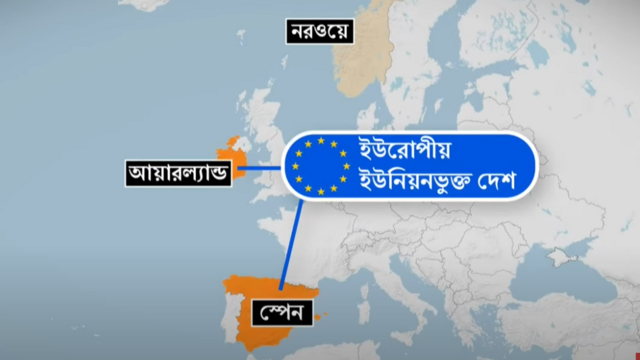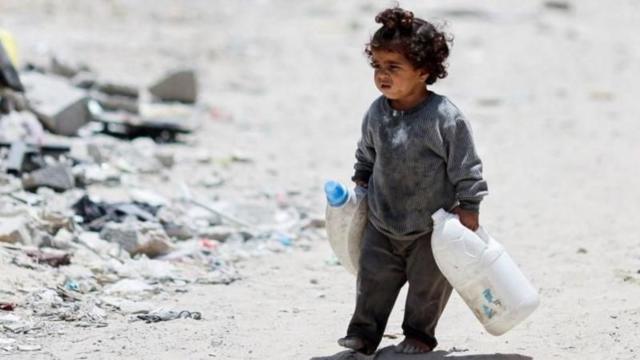Three European countries – Spain, Ireland and Norway – have officially recognized Palestine as a state. The countries said their recognition was meant to draw attention to finding a political solution to the ongoing conflict in the Middle East.
The three countries hope that by jointly taking this step, they can inspire other European countries to take similar steps. If it is possible to take diplomatic steps like this, it may be possible to implement a ceasefire in Gaza and rescue the hostages from Hamas.
Irish Prime Minister Simon Harris called it a ‘historic and momentous’ moment.
“I think this sends a message to the world that you can take real steps to make a two-state solution still possible, when many want to destroy that possibility,” he said.
Norwegian Foreign Minister Espen Barth Aide called the announcement a special moment for ‘Norway-Palestinian relations’.
On the other hand, Spanish Prime Minister Pedro Sánchez said, “Recognizing Palestine is not only historical justice but a very important step if everyone wants peace.”
The symbolic decision angered the Israeli government. The country said that three countries rewarded terrorism by giving this recognition.
Israel has withdrawn ambassadors from Ireland, Norway and Spain. They have also officially reprimanded the ambassadors of these countries in Tel Aviv. Just last week, Israel’s Foreign Ministry subpoenaed them and showed them the video of the October 7 attack by Hamas.

The recognition of Palestine by these three countries increased the diplomatic pressure on Israel. This comes as the International Criminal Court ordered the Israeli military (IDF) to halt military operations in southern Gaza and charged Prime Minister Benjamin Netanyahu with war crimes.
Western countries have also stepped up sanctions against Israeli residents settling in occupied Palestinian land.
The formal recognition process varies from country to country. This usually results in an exchange of identity cards with the Palestinian Authority in Ramallah.
The consulates of these countries in the West Bank or East Jerusalem will then become official embassies. The chief persons there will be considered as ambassadors of Puradastu.
The three recognizing countries said they recognized the state of Palestine based on the pre-war borders of 1967, when Jerusalem is considered the capital of both Israel and Palestine.

IMAGE SOURCE,REUTERS
Diplomats believe that Israel is going to react angrily after this move, so that no other country is encouraged to recognize in this way.
In recent months, Slovenia, Malta and Belgium have indicated that they too may recognize Palestine. But Belgium apparently backtracked on that decision before the country’s elections.
So far 139 countries of the world have recognized Palestine as a state.
On May 10, 143 out of 193 member states voted in favor of Palestine’s full membership.
Palestine is currently an observer state of the United Nations. As a result, even if they have a seat in the United Nations, they cannot participate in voting.
Palestine is a member of many other organizations such as the Arab League and the Organization of Islamic Cooperation.
Few European countries have recognized Palestine as a state. These include former Soviet Union countries like Hungary, Poland, Romania, Slovakia, Czech Republic and Bulgaria. Apart from this, Sweden and Cyprus have also recognized it.
However, the United States and many European countries have not yet recognized it. They said they could only recognize Palestine as a state as part of a long-term political settlement to resolve the Middle East conflict.